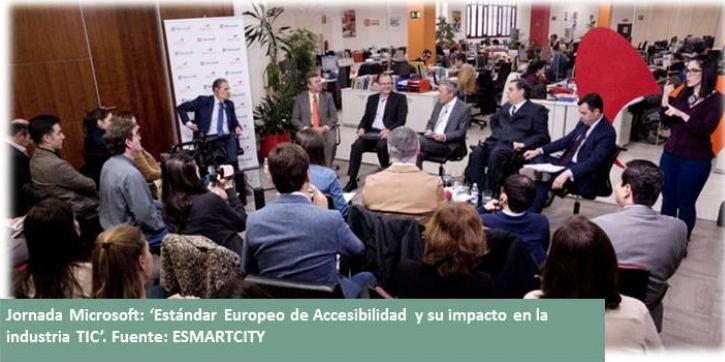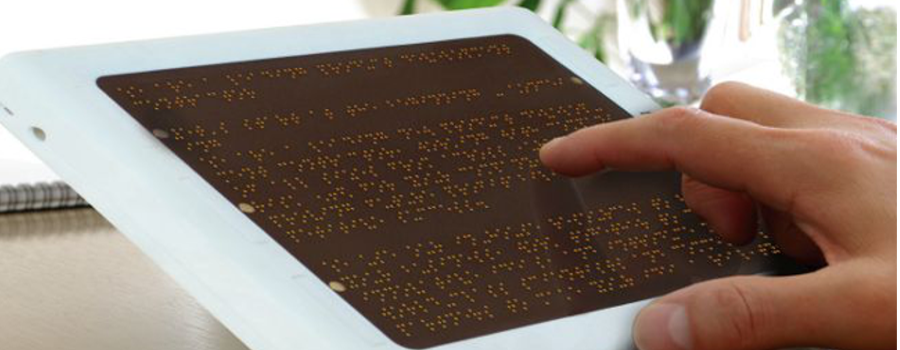At a time when the technologies are present in all areas of people lives, ICT accessibility is essential to ensure equal opportunities for all people in the use and access to resources, products and services.
In Spain, according to the report on Spanish Disability Strategy, 8.5% of the population claims to have a disability.
Take into account this data, the tendency to create rules and standards for companies to offer accesible products can convert it, not just a social good, but also a market opportunity.
Large companies place and begin to direct their projects towards disability. In this March, Microsoft has addressed an informative day focused on the “European Accessibility Standard and its impact on the ICT industry.”
On this day, experts from national associations and public and private entities have gathered with Alex Li, an expert on accessibility and analyst standards in Microsoft.
Together, they have analyzed the implications of this standard, its implementation in the Spanish government and the creation of mechanisms to ensure its compliance.
The European Accessibility Standard was approved in February 2014 and has been adapted in Spain from the European standard EN 301 549: “Accessibility requirements suitable for procurement of ICT products and services in Europe accessibility“.
With this standard it describes the functional requirements in order to ensure ICT products and services are accessible to all people. In addition, the European standard describes the test procedures and the evaluation methodology of each.
Although being aware of the importance of the rule and its contribution to fundamental rights, it is not mandatory, so it urges both administration and private companies to take responsibility for its implementation in the ICT industry.
The involvement of the administration is to include accessibility in tenders and their hiring criteria and ensuring compliance. The private enterprises by offering products with accessibility integrated from the beginning of design.

The most remarkable points of the conclusions of the conference can be summarized as follows:
• “The standard will bring the technology to a greater number of people “(Alex Li – Microsoft)
• “Design for all should be incorporated as standard”. (Miguel Ángel Valero -CEAPAT)
• “The standard establishes minimums. The responsibility for implementation is for everyone”. (Loïc Marínez – Equipo redactor de la norma)
• “The integration of accessibility is also a moral obligation” (Miguel Ángel Valero – CEAPAT)
• “Accessible design is a market opportunity that companies must seize” (Jesús Hernández – Fundación ONCE)
As for open debates, highlights the reference to the accessibility warranty and certification of the product. On the one hand, there are those who believe that there should be an external certification to ensure accessibility of products. On the other hand, those who believe that every company must self-certify its product.
Another open debate is the one that refers to surveillance the administration of the standard compliance. Li supports the idea of sanction for breach of contract. For this, in the contract or bid should be clearly included the accessibility of the product or service.
In addition, if accessibility guidelines are included among the criteria for public procurement, the companies that will offer it have competitive advantage over the rest, and the administration has in his hand ensure accessibility of the product.
We have before us the possibility to avoid future sanctions, the market opportunity and satisfaction of creating and selling socially inclusive products.
- Wearables for women - 21 October 2016
- Did Nikola Tesla open a door to accessibility? (II) - 3 August 2016
- Did Nikola Tesla open a door to accessibility? (I) - 29 July 2016
